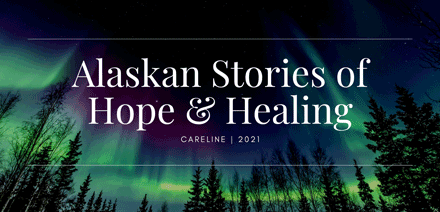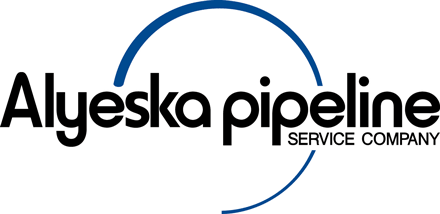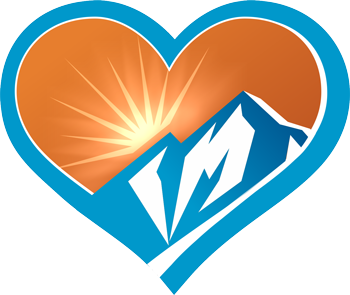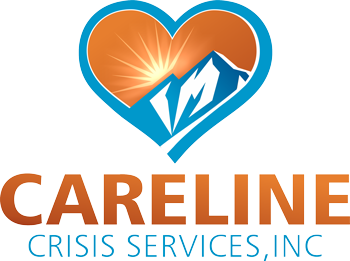
Tell Us A Little About Yourself –
I’m a queer person who strongly identifies as working class. I think identity is an important way of sharing with people about all of the things that make us a whole person – so I like to share with people that I identify as a white, anti-racist, polyamorous, relationship anarchist. I dropped out of high school and got a GED, and later decided to go back to school and now have a bunch of letters after my name, which is pretty cool. I parent a rad young person and I am family to two more amazing young people who both have children – so I’m a pretty young grandma as well! I love being of service in my community, whether it’s paid or unpaid work. I like to read and ride bikes and cook and hang out with young people and listen to them.

Are you a Lifelong Alaskan? What part of Alaska did you grow up in?
I was born and raised in Alaska and I grew up in Tooksook Bay, Nuitaq, North Pole, and Fairbanks. I currently live in Anchorage, though I also spent a lot of years hitch hiking, roadtripping, and otherwise living in the lower 48 when I was in my 20s and 30s.
What would you say to someone who needs help and someone to talk to but may not like the idea of reaching out to ask for help?
I think there are a lot of reasons that it feels hard to reach out when we’re struggling. I think that the Careline is great because everyone can use someone to talk to who won’t judge you, who is there to listen with an open heart, and who understands that you can be both independent and need a place to safely talk out hard things. I always find that the first step feels hardest, but after getting support, I feel lighter.
Alaska can be a challenging place to live. What are some things you do to cope and thrive in our unique Alaskan environment?
I am an introvert and I have a job which keeps me connected and surrounded by people all of the time – I find that draining, even though I love those people and my job! I try to make sure I get quiet alone time doing something I enjoy. Sometimes this means getting outside for a short easy walk, sometimes it means watering my plants and listening to music. One of the things I’ve learned over the years is that it doesn’t have to be something epic for it to be helpful. In fact, “epic” stresses me out! Better to keep it simple and find appreciation in the things that help me feel rested and renewed.
During a time of great uncertainty and turmoil and transition, what gives you hope right now? And what makes you proud?
Sometimes I think that life is always full of great uncertainty, turmoil, and transition. Our growing willingness to acknowledge that we all carry hurt and that we can heal together gives me hope. Radical love and transparency gives me hope. General, commonplace, everyday badassery from people just trying hard to be better to themselves and one another gives me hope.
During difficult times, is there a mantra or some sort of touchstone that you return to? Something that gives you strength or offers perspective during challenging times?
I discovered something in my experiences of grief – that I can find a new path, heal, find other people that get it, and become an even better version of my messy, complicated, extremely human and fallible self. So, when things get hard, I remind myself that it won’t be hard forever (even if it feels like it in that moment) and that I carry inside of me the possibility for new growth. It always makes me think of the phrase attributed to Christianopoulos, “They tried to bury us, they didn’t know we were seeds.”
I discovered something in my experiences of grief – that I can find a new path, heal, find other people that get it, and become an even better version of my messy, complicated, extremely human and fallible self.
J. Terry
Many of us have experienced trauma in our lives. The path to healing looks different and follows a different timeline for every one. Would you feel comfortable sharing a story of healing or recovery from your own life?
I was born in Alaska and raised here, too, and like a lot of Alaskans, I’ve experienced a lot of loss. From substance misuse to violence to death loss, it hasn’t always been a gentle road. The thing that most profoundly transformed me was the death of my brother, Ian. He was 25 when he died in an alcohol related traffic accident.
Until Ian died, I mostly never dealt with any of the trauma or pain of my life. Like many people, I pushed it down and convinced myself I was ok, even when I wasn’t. All of that changed when my brother died, but it didn’t change overnight. Instead, it took a lot of years – years of missing, of grieving, of messing up and damaging relationships, of having hard days where it took all of my energy to keep going. It took years of learning with other friends who had experienced death loss, of connecting with support systems and learning how to take care of myself. I think it’s different for everyone, but the things that have helped me the most are finding other people who have experienced traumatic death loss due to accident or suicide, maintaining sobriety through recovery community, awesome mental wellness support (including a therapist, but also activities I love and community that supports me), and contributing to my community.
I think that healing and recovery are daily, and the longer I work on maintaining good supports and giving myself grace for days when I struggle to show up, the more content I am, the more tools I have to navigate hard times and enjoy the joyful ones.
I think that healing and recovery are daily, and the longer I work on maintaining good supports and giving myself grace for days when I struggle to show up, the more content I am, the more tools I have to navigate hard times and enjoy the joyful ones.
J. Terry
Looking back on times of acute stress and crisis in your life, what advice would you give yourself?
I hate getting advice, even from myself. Whenever I do have moments of acute stress and crisis, I try to remind myself to breathe through them, that while it might be awful in that moment, it won’t always be, and that it really is ok to lean on the people I trust.
Feeling joyful can seem complicated after times of crisis. What are some ways that you have let joy back into your life?
I think that first, I needed to give myself permission to be happy. I was uncomfortable with my own happiness, it felt unfamiliar and I felt guilty. It wasn’t easy to enjoy myself, so when I noticed that I was, I tried to remind myself that it was ok – ok to laugh, to rest, and to play. Instead of pressuring myself to pretend that I’m ok all the time, I let myself be a little messy, acknowledge when I’m not great, and that helps me say when I’m doing well too. I love to spend time in my garden, to laugh with people, and to listen while people tell me their own stories.
In crisis or simply need someone to talk to?
Call anytime, toll-free:
1-877-266-4357 (HELP)
or text 4help to 839863
3-11 p.m. Tuesday-Saturday
Thank you Alyeska Pipeline Service Company for sponsoring Alaskan Stories of Hope & Healing


